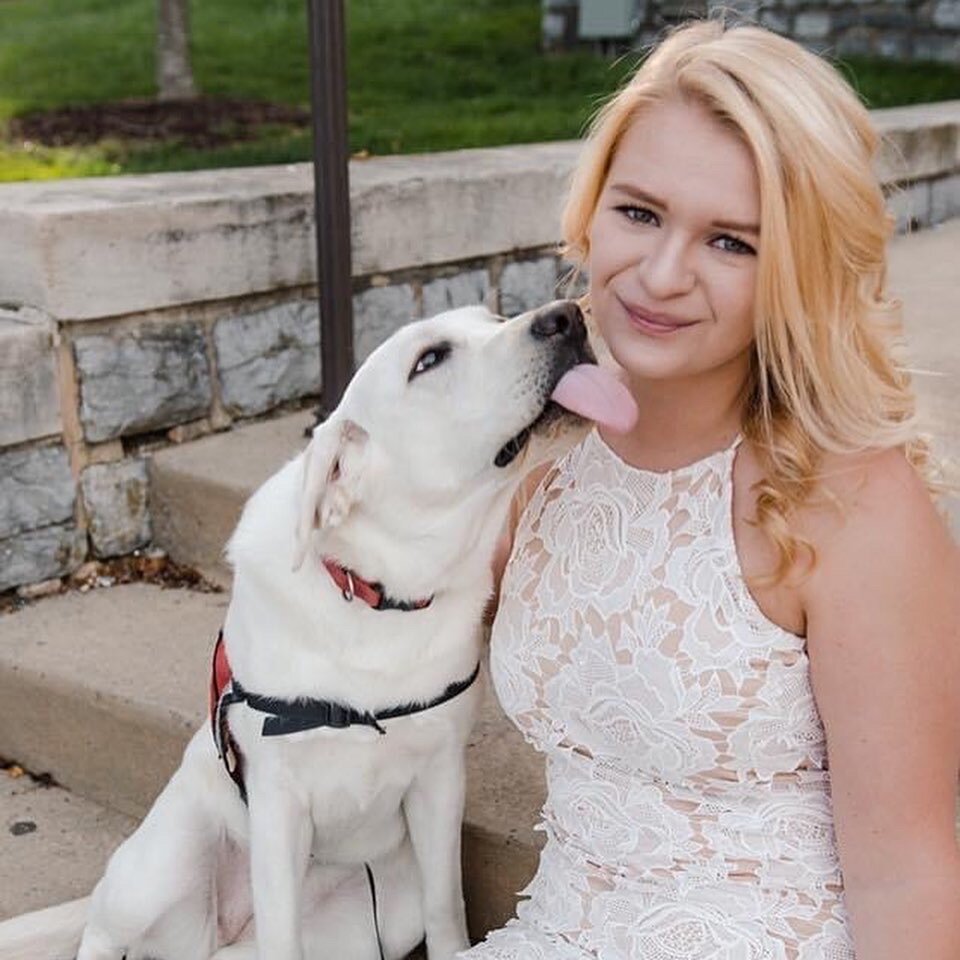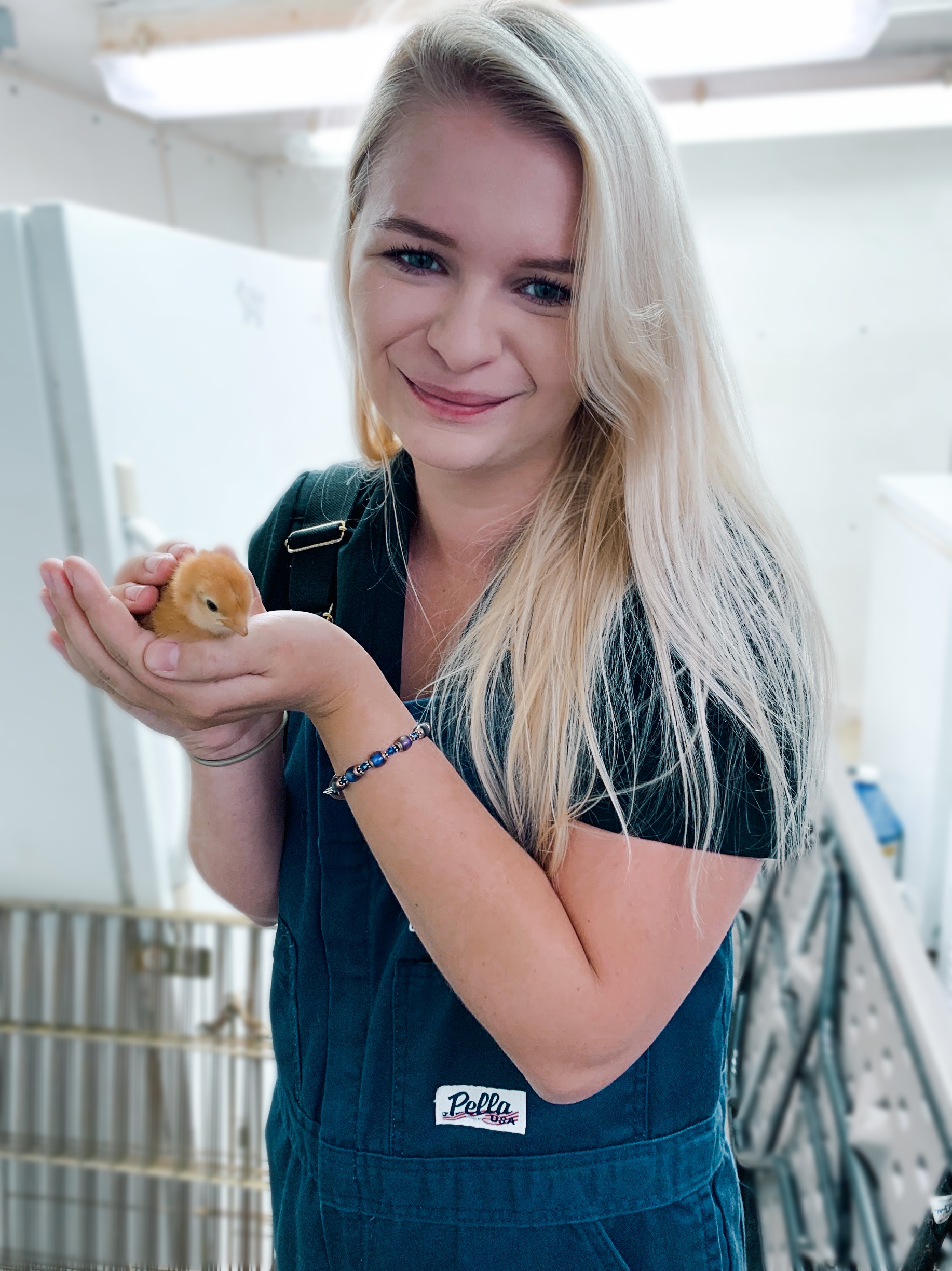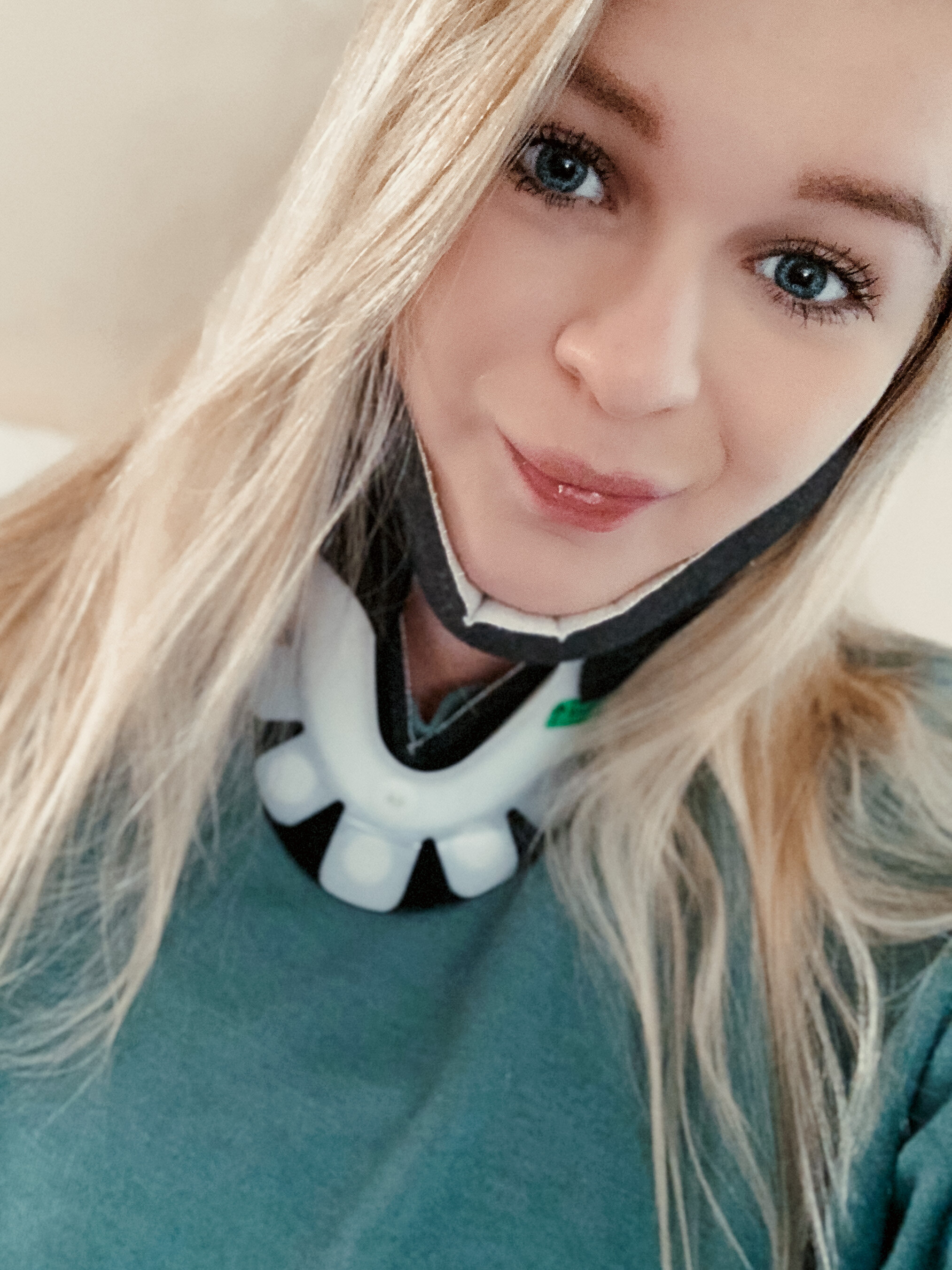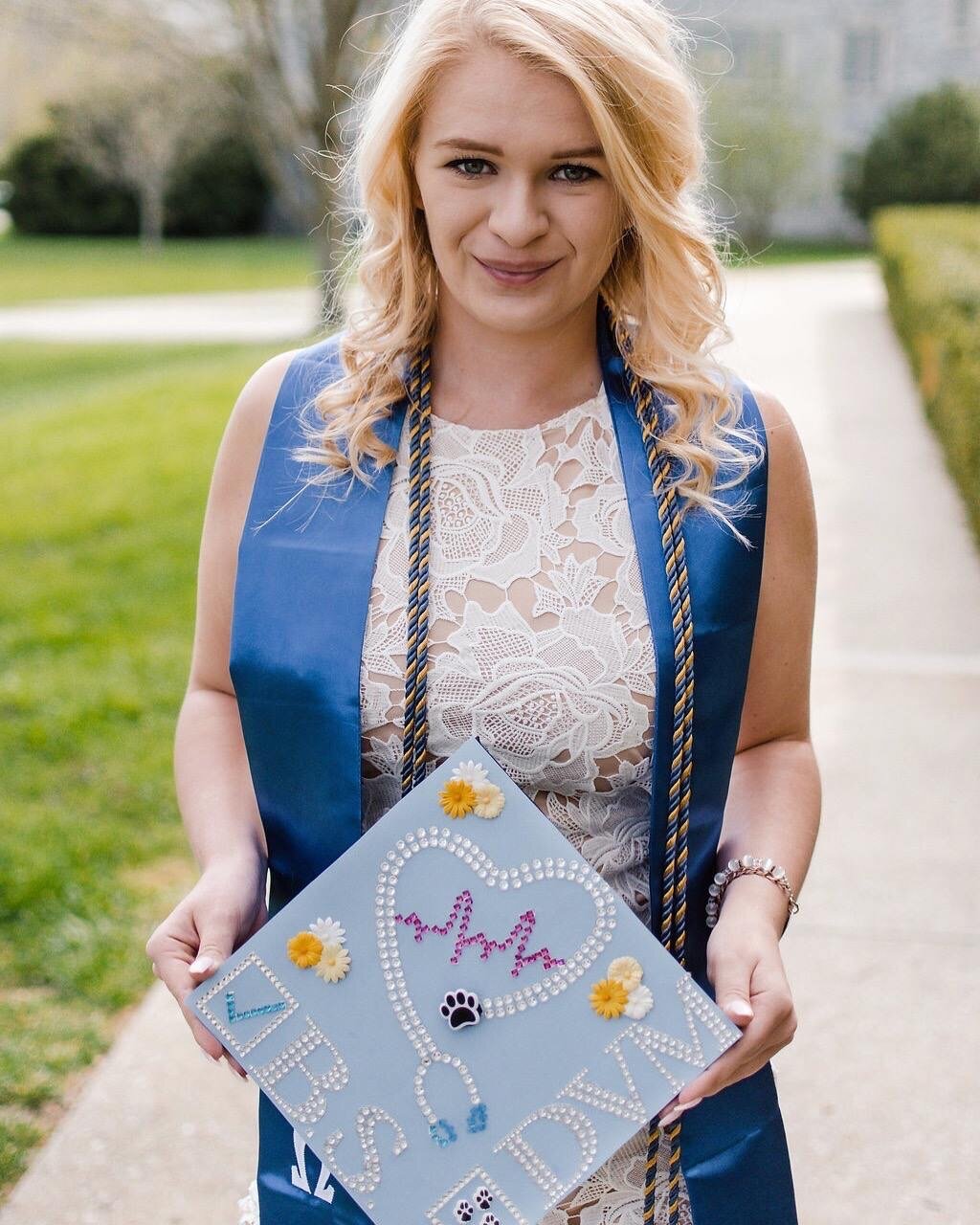Jessica Hirsch opens up about vulnerability, activism, and more
According to Insight Into Diversity, nearly 12% of vet students self-identify as having some type of disability, with around 40% being physical disabilities.
Yet disabled veterinary professionals seldom get the attention they deserve. One veterinary student, Jessica Hirsch, is fighting to change that.
Jessica is a graduate of Virginia Tech, and a second-year (2023) DVM student at Cummings School of Veterinary Medicine at Tufts University in Massachusetts. She is also the first Disability Liaison at Tufts CSVM, a position she advocated to establish this past year.
While Jessica has faced problems with her disabilities throughout her life—she recently had to take a leave of medical absence due to her illness, she hasn't let it stop her. She has worked hard to help bring attention to disabilities in the field of veterinary medicine, and has offered support to others through her blog and social media groups.
Today, Jessica is on the road to recovering and is expected to go back to school in January 2021. She hopes to continue studying animal behavior, small animal general practice, and small animal surgery. As she learns and grows as a veterinarian, she also hopes to continue advocating for disabled veterinarians, and show the world that disability is not “a four letter word.”
We caught up with Jessica to learn more:
If I wasn’t a vet I would be:
If I wasn’t a vet, I would absolutely be a service dog trainer. During undergrad, I worked with Saint Francis Service Dogs in Roanoke, VA and helped raise two beautiful service dogs who are set to graduate this September! Working with service dogs is how I came to choose a career in veterinary medicine. I want to dedicate my career to serving and ensuring the health and well-being of the working animals who serve us unconditionally everyday.
How I clear my head after a stressful day
For me my sanctuary is a gym. It’s almost as if when I put on my headphones and turn up my music as loud as it’ll go I enter a whole other world. For an hour or two I can focus on just the weights and my heartbeat. The gym is there for whatever I need it to be. It’s there if I need to work out frustrations or if I want to celebrate my accomplishments, good days and bad days, whenever I need it.
What adventure most changed my life
When I was 17 I thought I was destined to be a fashion designer. In fact, I spent the summer between my junior and senior year of high school living in Manhattan on my own and taking classes at the Fashion Institute of Technology (FIT). This was my first time moving away from home, let alone living on my own. For the first few weeks I didn’t leave my apartment for much besides groceries and my classes. I was too scared to explore on my own and thought I would be judged for dining alone in a restaurant keeping in mind this was the pre-smartphone era.
After a couple weeks, I started venturing out alone. I spent one Saturday getting lost in the NYC subway because I didn’t know the difference between uptown and downtown. I visited the Empire State Building, went thrift shopping in Brooklyn, and took weekend runs along the Hudson River.
That was the summer I became an independent woman. If I hadn’t experienced that summer, I don’t know that I would have had the courage to decline my in-state offer for vet school and move 700 miles away to Tufts.
Also, if I hadn’t moved to Massachusetts, I would’ve never found the physicians who have supported me and have made it possible for me to continue pursuing a career in veterinary medicine.
What’s the biggest problem facing the veterinary field today?
I believe the biggest problem facing the veterinary field today is the lack of diversity. This inadequacy extends into race, gender identities, sexual orientation, and physical abilities. As a member of Tufts Veterinary Council on Diversity, we have started having important conversations on how to approach this issue. Solving the problem will require a thorough evaluation of not only the choices being made by admission committees, but also investigating the barriers that discourage or outright impede minorities from applying to veterinary school in the first place.
What is your mission in life?
My mission in life is to advocate for the rights and inclusion of people with disabilities and dismantle misconceptions about invisible illnesses. As a person with disabilities, I have personally experienced countless barriers and ableist standards, and the veterinary industry is no exception. It is my goal to make veterinary schools more accessible for students with disabilities, and aid pre-veterinary students and other aspiring veterinary medicine professionals with disabilities to find their place within the industry without fear of discrimination.
I hope to make practices more accessible not only for veterinarians with disabilities but for clients with disabilities as well. For many people with assistance animals, we as veterinarians are the sole protector of the independence they achieve as a working pair. With the rising utilization of service animals, now more than ever it is important for the veterinary industry as a whole to be educated on inclusive language and accessibility for both staff and clients.
You can follow Jessica’s journey on Instagram at Disabled DVM
If you are a veterinary student and have a disability, you can join Jessica’s new Facebook support group by clicking on the link below:





